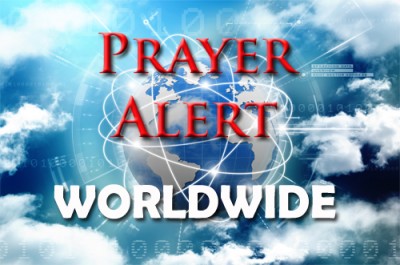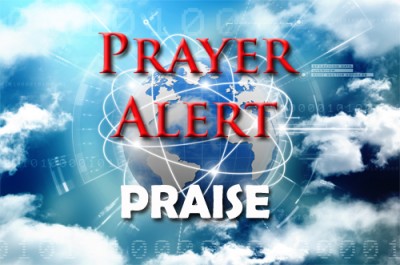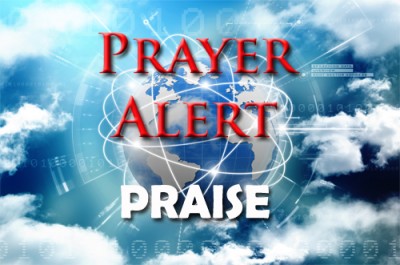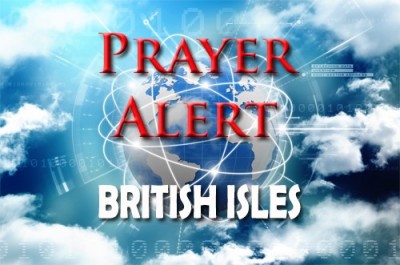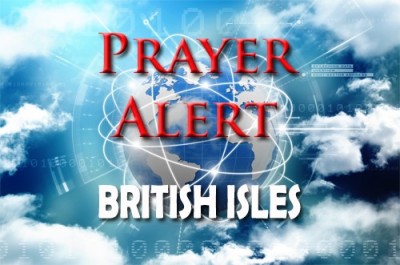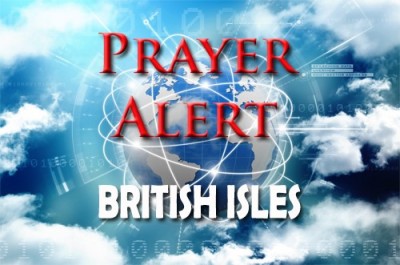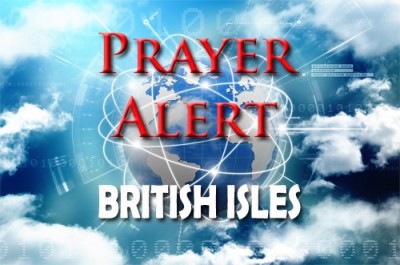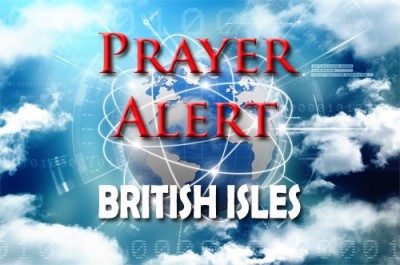Sudan: ‘deep state’ of Islamists remains
09 May 2019Omar al-Bashir is no longer Sudan’s president, but those who served him want to hold on to power through a military council. Meanwhile, protesters are still staging a sit-in outside Khartoum’s military headquarters and demanding that power be handed over to civilians. Islamist regime insiders who were close to al-Bashir remain in the shadows, and, unfortunately for the Christian minority of 3%, they are determined to maintain their grip on power. These Islamists are what is being described in media reports as a ‘deep state’ of shadowy authority figures that could eventually seize power in a counter-coup. Islamist influence is strong in the upper echelons of the armed forces and political parties are weakened by decades of authoritarian rule. It will be difficult for independent individuals with experience and strength to deal with these dangers.
Israel: secular Jews discover the Living God
02 May 2019A Jewish refugee couple from Russia were not interested in hearing about Christ, but they did participate in a marriage seminar based in Israel. L and Y had benefited from previous marriage guidance, but still felt a residue of bitterness beneath the surface. The teaching made big differences in their married life, but it was coming to faith in Christ that made all things new. ‘It has made me see that, despite the past, I can start building a better present. I have drawn so much nearer to God, I realised that in prayer I can ask for wisdom and understanding in different situations I might be in.’ Jewish refugees from former Soviet bloc countries as well as Israeli nationals come to faith in Christ through the native ministry’s varied outreaches - feeding the hungry, biblical tours of the Holy Land, celebration of Jewish festivals like Passover, and evangelistic courses and events.
Syria: fighting IS, finding Jesus
02 May 2019When Kobani was under siege by IS most of the city was destroyed and thousands fled. But IS’s violence caused a re-examination of Islam by the Kurds. When Christian Kurds are asked, ‘What made you change?’ they reply, ‘What IS did opened our eyes.’ When they saw first-hand the death and destruction wrought by radical Islam, they revised their beliefs, saying, ‘Islam in theory is different to Islam in action’. Brother Rachid said, ‘When we read “Kill the infidels” it’s only a sentence, but when you see the blood - it changes your attitude. The Lord has used these circumstances to bring people to faith. It is still growing like this (pointing upward), accelerating, huge numbers.’ About twenty families (80 to 100 people) now worship at Kobani’s new church. ‘We meet on Tuesdays and hold a service on Fridays. It is open to anyone who wants to join’, he said.
Turning women’s lives around
02 May 2019Women who have had a brush with the law are turning their lives around by making luxury handmade chocolates at a community interest company called Positive Changes. People with criminal records face barriers to employment - no qualifications, low self-esteem. Grace Chocolates, based in a church hall, is breaking their cycle of re-offending by giving them a job. In twelve months, six volunteers working with women one day a week made 19,000 chocolate truffles. Mary, an ex-drug user, said, ‘I was put on a court order and got involved with Positive Changes. It’s more than just a chocolate-making company. Words cannot easily describe how my life has been turned round 360o. When I started the course I was quiet and withdrawn. But my self-esteem and self-confidence is now sky-high by comparison. Rev Dan Harper said, ‘Positive Changes is freeing ladies to grow into the people that God made: wonderful, worthwhile people capable of love, compassion and hope.’
Bishop wants protection for rural schools
02 May 2019Following a summit held at Lambeth Palace with representatives from Ofsted, the National Farmers Union, the Prince’s Countryside Fund, and council and education leaders from across England, the CofE’s lead bishop for education, Stephen Conway, said that there needs to be a cross-governmental rural strategy. The delegates at the summit looked at ways to safeguard schools in the countryside. Bishop Stephen said, ‘We have been reassured that the Government has a presumption against the closure of rural schools, which is a positive foundation for the future.’ Last month, the Department of Education report on running rural primary schools efficiently suggested that primary schools should share headteachers. But this is difficult when some headteachers in small schools also do a lot of the teaching. Rural schools also have challenges with funding, and getting discounts on equipment.
Government, Huawei, UK telecoms
02 May 2019The National Security Council discuss intelligence coordination and defence strategies. But information from one meeting was published in the Daily Telegraph. Defence secretary Gavin Williamson was suspected of, and sacked for, allegedly leaking discussions around giving Chinese telecoms firm Huawei contracts to build UK infrastructure to support future networks. These networks would allow people to control their home (lights, washing machines, etc), allow driverless cars to operate, control infrastructure, water and air-quality monitoring systems, traffic lights, and display live departures at bus stops and train stations. Other governments around the world, concerned over security, have blocked Huawei technology from their next-generation networks. British telecom giants BT and EE are removing equipment made by Huawei from core parts of their 3G and 4G operations, and plan to exclude it from bidding on future 5G contracts. Huawei said it would never hand information to the Chinese government, but there is scepticism over whether it would have a choice. Meanwhile Mr Williamson, one of the few ministers with good relations with the DUP, has been sacked despite his strong denial of any involvement in the leak. See
Christian charity on social care payments
02 May 2019Over-fifties could pay £300+ a year extra National Insurance, to ‘fund a fairer social care system’. The idea proposed by Damian Green is part of a range of measures to fill a funding gap for pensioners. The Pilgrims’ Friend Society said that while some people might struggle to make the payments, they supported it because ‘we know as Christians that we're giving to the general good. For some people who are barely getting through, that would mean the difference between paying the rent or not. But for people who are managing, it would be OK. It should be for everybody because everybody is going to become old unless they die young.’ The proposed model of state pension is that everyone will be entitled to a basic safety net of support, with individuals encouraged to top up this provision from their own savings or housing wealth. Proposals including winter fuel allowance tax and surcharges have been labelled ‘a tax on getting old’.
Anti-social behaviour
02 May 2019A report by victims' commissioner Baroness Newlove warns that anti-social behaviour is being ignored by authorities across England and Wales. She said police, local councils and housing providers were downplaying the harm caused by crimes, and victims being repeatedly targeted were left to ‘suffer in silence’. Meanwhile police chiefs and local government associations said they took anti-social behaviour seriously; but their resources were under strain, and they needed more funding to tackle the problems. People are scared, whether in their homes or in the streets; syringes are buried in children's sandpits, and there are huge increases in 'petty' council fines. Victims say they often feel persistently targeted by their perpetrators, and ignored by those with the power to prevent and intervene. Anti-social behaviour such as vandalism, street drinking, prostitution-related activity, and nuisance neighbours is often treated as a series of isolated incidents, rather than taking into account the cumulative effect it has on victims; affecting mental health, sleep, work and relationships.
